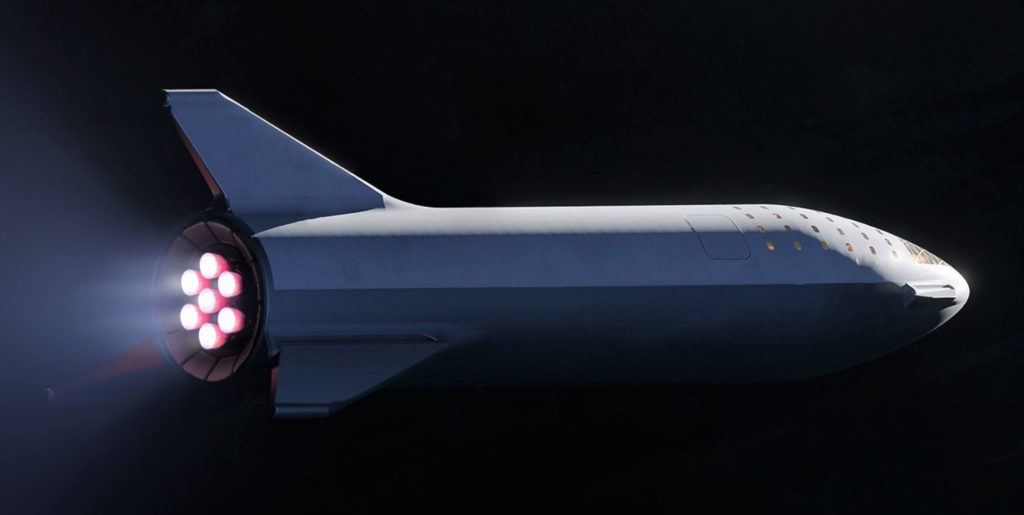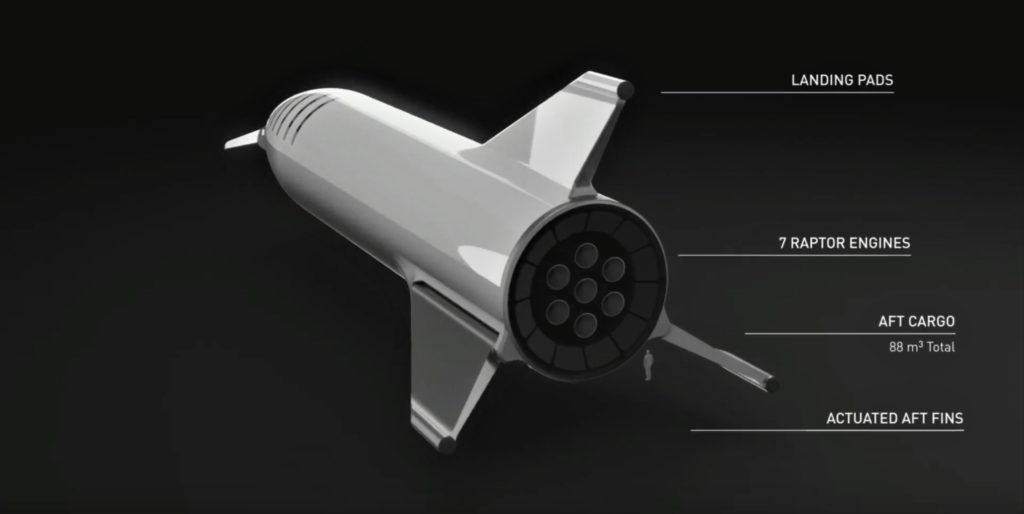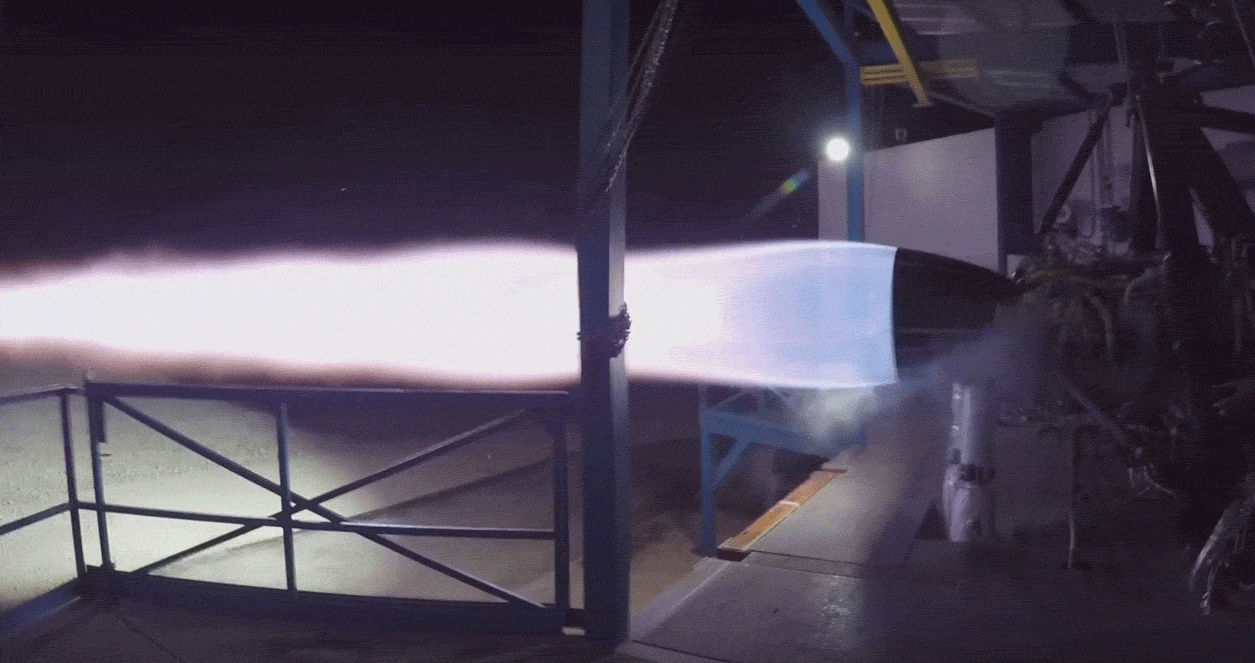
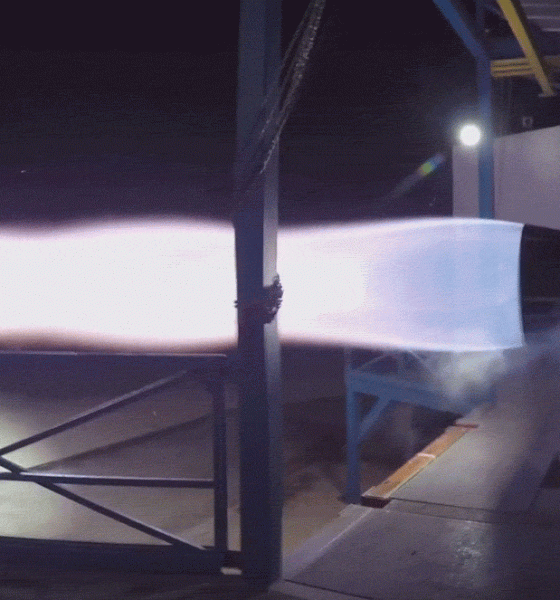
News
SpaceX’s Raptor engine nears flight-readiness for BFR spaceship hop tests
In a presentation that revealed plans for a private mission to the Moon in as early as 2023, SpaceX CEO Elon Musk dedicated a couple minutes to BFR’s booster and spaceship rocket engine of choice, Raptor. Musk had nothing but praise for SpaceX’s propulsion engineers and technicians, stating that he was “really excited” about the propulsion system’s advanced design.
SpaceX has completed over 1,200 seconds of firing across 42 main Raptor engine tests. pic.twitter.com/EhxbPjd8Cj
— SpaceX (@SpaceX) September 29, 2017
Judging from a total of 1200 seconds of hot-fires completed just under a year ago, it’s safe to assume that Raptor has soared beyond that measure. Most recently, photos captured earlier this summer showed that a new prototype was installed on SpaceX’s horizontal Raptor test stand in McGregor, Texas, looking nearly identical to the deep black Raptor nozzle shown in Monday’s presentation. Previous Raptor prototypes seen during testing or at the test stand appeared to have a nozzle closer to SpaceX’s silver Merlin 1Ds, whereas this newest iteration’s nozzle doesn’t seem to reflect the powerful spotlights surrounding it.
Perhaps not a coincidence, SpaceX’s propulsion engineering lead Tom Mueller stated in May 2018 that flight-ready Raptors were already “in work”, with the implication being that the finalized Raptor design had been completed and that manufacturing work was beginning in earnest. Barring an unexpected shift in testing strategies, SpaceX will optimize and verify Raptor’s flight design over the course of several hundred seconds of static fire tests, eventually leading into the same practices used for Falcon 9.
- A September 2018 render of Starship (then BFS) shows one of the vehicle’s two hinged wings/fins/legs. (SpaceX)
- In 2018, Musk decided to sidestep vacuum engines entirely, moving to 7 SL Raptors. (SpaceX)
“This is a stupidly hard problem and SpaceX engineering has done a great job with this design.” In a May 2018 tweet, Musk added that “this engine is something special.” – Elon Musk, 09/17/18
Prior to being installed on any BFR prototypes, all Raptors will thus go through acceptance testing in Texas, potentially followed by a full-up static fire of the first completed BFR spaceships. Falcon 9 boosters – capable of roughly 7600 kN (1.7 million lbf) of thrust – are routinely tested in McGregor, while a full BFR spaceship with 2017-grade Raptors (1700 kN at sea level) would produce 12,000 kN (2.7 million lbf) of thrust with all Raptors firing. However, due to the sheer difficulty of transporting something 9 meters in diameter by road, it’s more likely that SpaceX will need to build up a dedicated static fire and hop test facility near the coast of Texas, at a spot called Boca Chica.
An immense liquid oxygen (LOX) tank just arrived at @SpaceX's prospective Boca Chica, TX facility, likely to be dedicated to BFR & BFS testing. @NASASpaceflight forum user "Nomadd" caught some of the first detailed photos, as well as the tank's arrival at SpaceX land on July 11. pic.twitter.com/hr7SeA6BGw
— Eric Ralph (@13ericralph31) July 12, 2018
Getting to hop tests
As it turns out, massive propellant storage tanks (vacuum insulated) have already begun arriving at SpaceX’s Boca Chica facilities, currently dedicated to a duo of tracking and communications radars to be used for Crew Dragon communications. Over the course of the next 12 or so months, SpaceX is thus likely to expand and develop its Boca Chica facilities, culminating – if all goes well – sometime late next year with the first shipment of a prototype BFR spaceship from Port of Los Angeles, through the Panama Canal, to Port of Brownsville, Texas.
“I’m really excited about this engine design, I think the SpaceX propulsion team has done an amazing job – the SpaceX structures and aero team has done a phenomenal job in the design of this.”
“Even others in the aerospace industry don’t know what question to ask – once we could frame the question [with precision], the answers [for Raptor and BFR R&D] flowed.” – Elon Musk, 09/17/18

SpaceX has already completed the first composite segment (both a section of the fuselage and of a propellant tank) of the first BFR spaceship prototype, and Musk further stated that BFR’s structural engineers and technicians would begin fabricating the spaceship prototype’s propellant tank domes and engine section “soon”. A vast amount of work remains to be completed before that prototype will begin to look anything like an actual spaceship, and the exact fidelity SpaceX is hoping to achieve with it is unclear.
If the company tries to get as close as possible to a finished product (within reason, of course) before beginning propulsive hop tests in Texas, a very late-2019 debut of that test campaign could be a practical goal. It’s not a perfect comparison, but Falcon 9 is perhaps the best prior example of SpaceX’s speed of development, moving from structural fabrication and testing (albeit with Falcon 5 in mind) in 2006 and 2007 to a full-up orbital launch of the first Falcon 9 in mid-2010, with milestones like the first static fire of a booster octaweb and nine Merlin 1C engines 6-12 months prior.
For prompt updates, on-the-ground perspectives, and unique glimpses of SpaceX’s rocket recovery fleet check out our brand new LaunchPad and LandingZone newsletters!

Elon Musk
Tesla Full Self-Driving set to get an awesome new feature, Elon Musk says
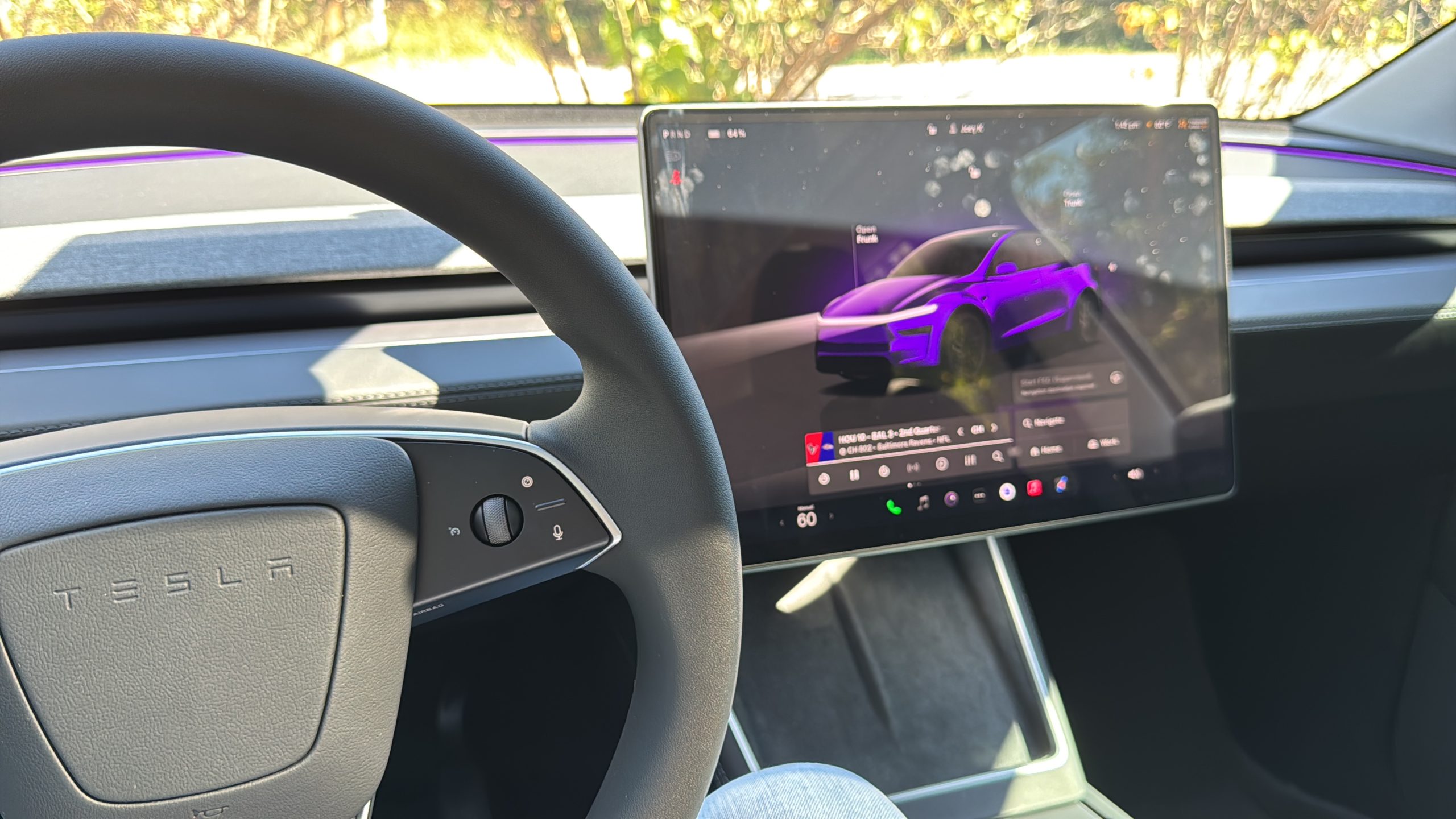
Tesla Full Self-Driving is set to get an awesome new feature in the near future, CEO Elon Musk confirmed on X.
Full Self-Driving is the company’s semi-autonomous driving program, which is among the best available to the general public. It still relies on the driver to ultimately remain in control and pay attention, but it truly does make traveling less stressful and easier.
However, Tesla still continuously refines the software through Over-the-Air updates, which are meant to resolve shortcomings in the performance of the FSD suite. Generally, Tesla does a great job of this, but some updates are definitely regressions, at least with some of the features.
Tesla Cybertruck owner credits FSD for saving life after freeway medical emergency
Tesla and Musk are always trying to improve the suite’s performance by fixing features that are presently available, but they also try to add new things that would be beneficial to owners. One of those things, which is coming soon, is giving the driver the ability to prompt FSD with voice demands.
For example, asking the car to park close to the front door of your destination, or further away in an empty portion of the parking lot, would be an extremely beneficial feature. Adjusting navigation is possible through Grok integration, but it is not always effective.
Musk confirmed that voice prompts for FSD would be possible:
Coming
— Elon Musk (@elonmusk) February 21, 2026
Tesla Full Self-Driving is a really great thing, but it definitely has its shortcomings. Navigation is among the biggest complaints that owners have, and it is easily my biggest frustration with using it. Some of the routes it chooses to take are truly mind-boggling.
Another thing it has had issues with is being situated in the correct lane at confusing intersections or even managing to properly navigate through local traffic signs. For example, in Pennsylvania, there are a lot of stop signs with “Except Right Turn” signs directly under.
This gives those turning right at a stop sign the opportunity to travel through it. FSD has had issues with this on several occasions.
Parking preferences would be highly beneficial and something that could be resolved with this voice prompt program. Grocery stores are full of carts not taken back by customers, and many people choose to park far away. Advising FSD of this preference would be a great advantage to owners.
Cybertruck
Elon Musk clarifies Tesla Cybertruck ’10 day’ comment, fans respond
Some are arguing that the decision to confirm a price hike in ten days is sort of counterproductive, especially considering it is based on demand. Giving consumers a timeline of just ten days to make a big purchase like a pickup truck for $60,000, and basically stating the price will go up, will only push people to make a reservation.
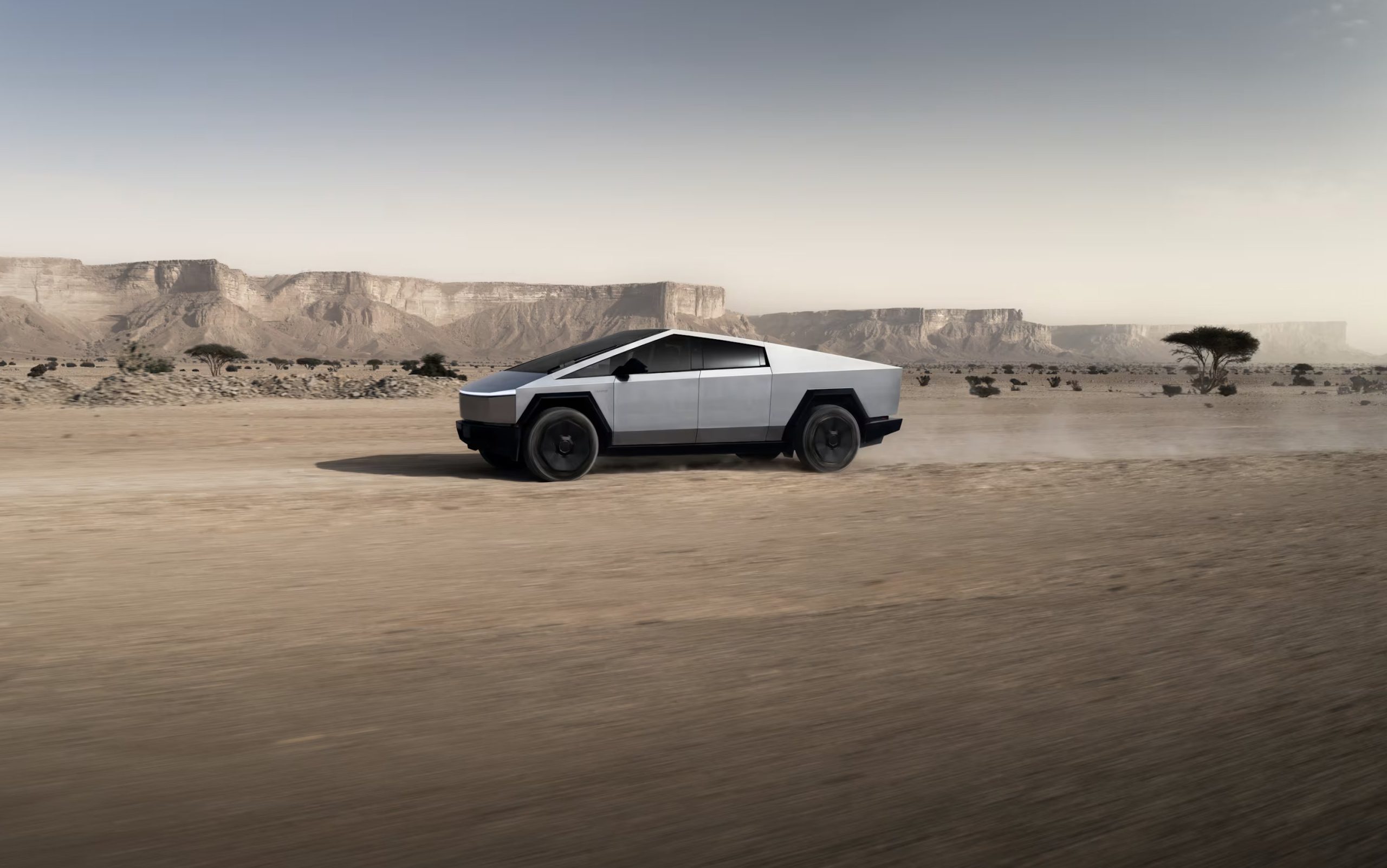
Elon Musk has clarified what he meant by his comment on X yesterday that seemed to indicate that Tesla would either do away with the new All-Wheel-Drive configuration of the Cybertruck or adjust the price.
The response was cryptic as nobody truly knew what Musk’s plans were for the newest Tesla Cybertruck trim level. We now have that answer, and fans of the company are responding in a polarizing fashion.
On Thursday night, Tesla launched the Cybertruck All-Wheel-Drive, priced competitively at $59,990. It was a vast improvement from the Rear-Wheel-Drive configuration Tesla launched last year at a similar price point, which was eventually cancelled just a few months later due to low demand.
Tesla launches new Cybertruck trim with more features than ever for a low price
However, Musk said early on Friday, “just for 10 days,” the truck would either be available or priced at $59,990. We can now confirm Tesla will adjust the price based on more recent comments from the CEO.
Musk said the price will fluctuate, but it “depends on how much demand we see at this price level.”
Depends on how much demand we see at this price level
— Elon Musk (@elonmusk) February 20, 2026
Some are defending the decision, stating that it is simply logical to see how the Cybertruck sells at this price and adjust accordingly.
Case 1: You don’t like it -> don’t buy it
Case 2 (me): You like it, it’s fits your situation and needs -> you buy it.
Case 3: Complain endlessly for no reason, you weren’t going to get one anyway, but you want people to know you’re mad, for some reason.Silly netizens.
— Ryan Scanlan 👥 (@Xenius) February 21, 2026
Others, not so much.
Alright I’m obviously not the one successful enough to be calling the shots at Tesla and worth almost a trillion dollars
But people were excited about the awesome Cybertruck news and then it got taken away, that’s why people are annoyed. The wording felt more like a threat.… pic.twitter.com/NWVNklcXoJ
— Dirty Tesla (@DirtyTesLa) February 21, 2026
No but fr wtf you doing dude???????
— Greggertruck (@greggertruck) February 20, 2026
It’s how it was communicated.
If it had been stated clearly on the website for everyone to see, everyone would be fine.— KiTT_2020 (@kitt_2020) February 20, 2026
Some are arguing that the decision to confirm a price hike in ten days is sort of counterproductive, especially considering it is based on demand. Giving consumers a timeline of just ten days to make a big purchase like a pickup truck for $60,000, and basically stating the price will go up, will only push people to make a reservation.
Demand will look strong because people want to lock in this price. The price will inevitably go up, and demand for the trim will likely fall a bit because of the increased cost.
Many are arguing Musk should have kept this detail internal, but transparency is a good policy to have. It is a polarizing move to confirm a price increase in just a week-and-a-half, but the community is obviously split on how to feel.
Cybertruck
Tesla Cybertruck’s newest trim will undergo massive change in ten days, Musk says
It appears as if the new All-Wheel-Drive trim of Cybertruck won’t be around for too long, however. Elon Musk revealed this morning that it will be around “only for the next 10 days.”
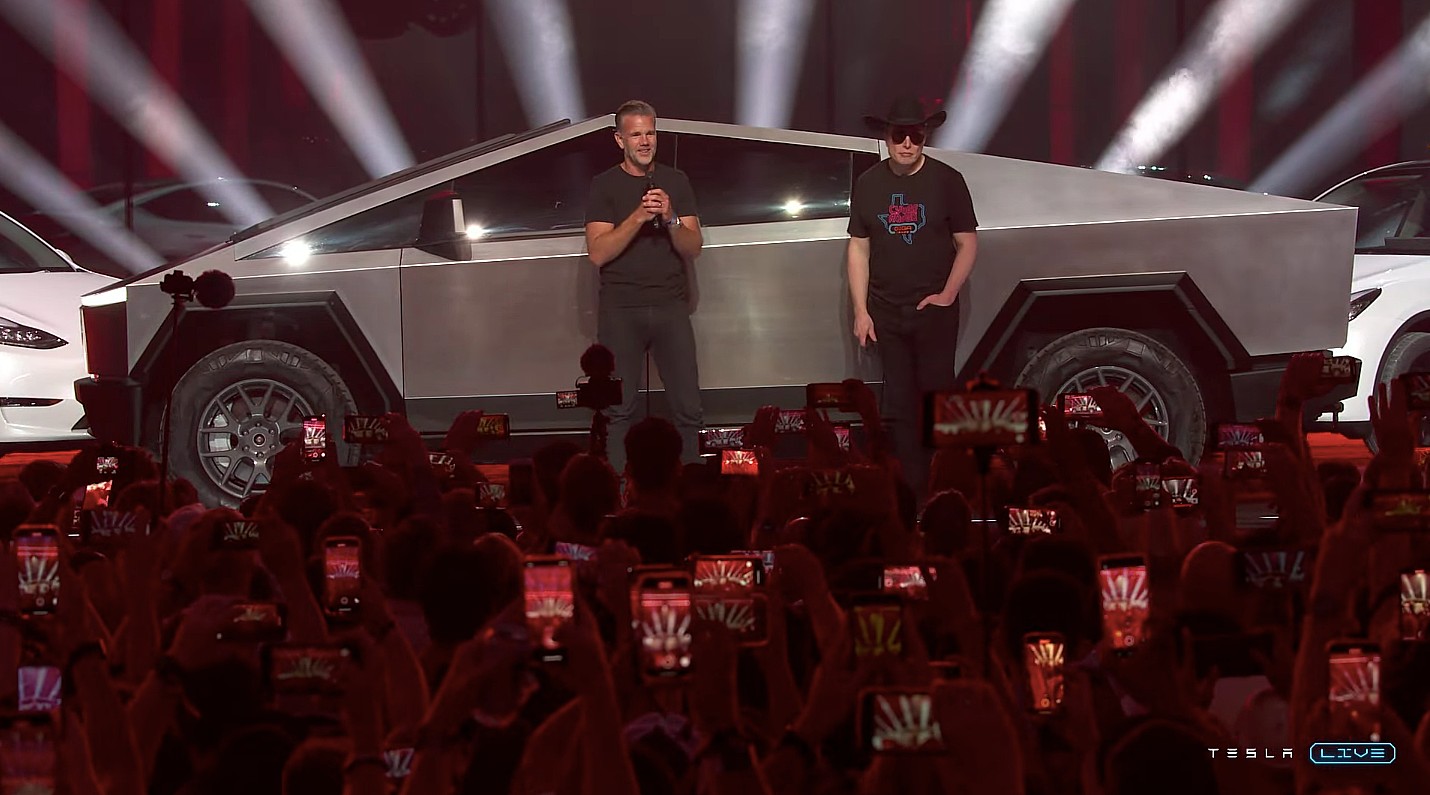
Tesla’s new Cybertruck trim has already gotten the axe from CEO Elon Musk, who said the All-Wheel-Drive configuration of the all-electric pickup will only be available “for the next ten days.”
Musk could mean the price, which is $59,990, or the availability of the trim altogether.
Last night, Tesla launched the All-Wheel-Drive configuration of the Cybertruck, a pickup that comes in at less than $60,000 and features a competitive range and features that are not far off from the offerings of the premium trim.
Tesla launches new Cybertruck trim with more features than ever for a low price
It was a nice surprise from Tesla, considering that last year, it offered a Rear-Wheel-Drive trim of the Cybertruck that only lasted a few months. It had extremely underwhelming demand because it was only $10,000 cheaper than the next trim level up, and it was missing a significant number of premium features.
Simply put, it was not worth the money. Tesla killed the RWD Cybertruck just a few months after offering it.
With the news that Tesla was offering this All-Wheel-Drive configuration of the Cybertruck, many fans and consumers were encouraged. The Cybertruck has been an underwhelming seller, and this seemed to be a lot of truck for the price when looking at its features:
- Dual Motor AWD w/ est. 325 mi of range
- Powered tonneau cover
- Bed outlets (2x 120V + 1x 240V) & Powershare capability
- Coil springs w/ adaptive damping
- Heated first-row seats w/ textile material that is easy to clean
- Steer-by-wire & Four Wheel Steering
- 6’ x 4’ composite bed
- Towing capacity of up to 7,500 lbs
- Powered frunk
It appears as if this trim of Cybertruck won’t be around for too long, however. Musk revealed this morning that it will be around “only for the next 10 days.”
Only for the next 10 days https://t.co/82JnvZQGh2
— Elon Musk (@elonmusk) February 20, 2026
Musk could mean the price of the truck and not necessarily the ability to order it. However, most are taking it as a cancellation.
If it is, in fact, a short-term availability decision, it is baffling, especially as Tesla fans and analysts claim that metrics like quarterly deliveries are no longer important. This seems like a way to boost sales short-term, and if so many people are encouraged about this offering, why would it be kept around for such a short period of time?
Some are even considering the potential that Tesla axes the Cybertruck program as a whole. Although Musk said during the recent Q4 Earnings Call that Cybertruck would still be produced, the end of the Model S and Model X programs indicates Tesla might be prepared to do away with any low-volume vehicles that do not contribute to the company’s future visions of autonomy.
The decision to axe the car just ten days after making it available seems like a true head-scratcher.
